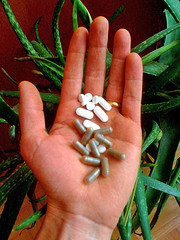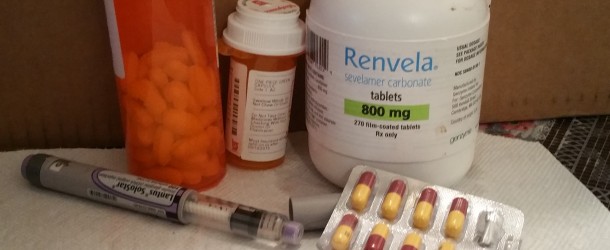 We vegans not only refrain from a diet related to animals, but also from any general product derived from animals; be it a leather bag made from cow’s skin, a lipstick made from a cow’s brain tissue, honey from the bees, or a silk cloth from a silkworm. The basic philosophy that vegans follow is to create a humane environment that is animal-friendly and doesn’t exploit animals. Now I want you to ask yourselves, “how do we apply it to the healthcare field?”
We vegans not only refrain from a diet related to animals, but also from any general product derived from animals; be it a leather bag made from cow’s skin, a lipstick made from a cow’s brain tissue, honey from the bees, or a silk cloth from a silkworm. The basic philosophy that vegans follow is to create a humane environment that is animal-friendly and doesn’t exploit animals. Now I want you to ask yourselves, “how do we apply it to the healthcare field?”
The question was brought up to me a few weeks ago, “how can you live an animal friendly lifestyle while working and receiving health care?” I will be honest with you I never actually thought of it. Have you ?
I have been in health care my whole life, as a patient, as a direct patient care provider, and now as an administrator. It never really occurred to me to apply my veganism into my job or my own treatments. Now I am not talking about holistic health care, I am talking about in the hospital or urgent care situations. Have you though about it? Do you practice your veganism in healthcare just as you do in your daily life?
What do we avoid?
As a vegan what is placed into my body is great importance. When discussing cosmetics there are a number of vegan friendly options now open to the industry. Apart from the diet and cosmetics, are there also limitations or adjustments we need to take into account when it comes down to healthcare? There are many drugs, vaccines, and supplements that are directly or indirectly derived from animals. They either contain animal by product or extract as their ingredient or are produced by animal labor.
Conflicts with vaccines
Most of the vaccines used today are made with the help of an animal by-product, for example eggs. Vaccines and viruses are injected in the hen’s eggs for incubation purposes so that it replicates (after all viruses need a live host in order to grow), then the extract is collected and further processed. This vaccine is 50% animal dependent now and hence, should be discouraged. Taking the example of the very common influenza vaccine, the question becomes should vegans use it since it is having animal extracts (though in minimal amounts). There is no other equally viable alternative for a flu vaccine for flu prevention. Now this is not just for the flu vaccine, but the MMR vaccine which is one of the very basic vaccines is also made this way. MMR also happens to be mandatory in some states and in some jobs (particularly healthcare).
Conflicts with the medicines/drugs
Medications may also have a high percentage of animal by product in them. The very common anti-coagulant drug Heparin is derived from the lungs of the cows and the intestines of pigs. (A large percentage of the population who have cardiac disease are on this medication). Lanolin, an ophthalmic drug having excellent anti-bacterial properties, is made from the sheep’s oil glands. Premarin, a conjugated estrogen, is derived from horse’s urine. There might be some alternatives to these drugs but they are not as effective as these are. If not as an ingredient then the gelatin, which is derived from the skin, ligaments and tendons of the cows and pigs, is used to prepare the coating of many drugs, to bring them in the capsule form.
What alternatives do you use? Are there any? Do you apply veganism into your health care treatment or practice?

For things like supplements it’s easy enough to get around most of the time (some brands have veg-caps or label vegan, etc).
I actually never used to get the flu shot and rarely got the flu until I had to travel (on planes) for work a lot. One year I got two flus in a row thanks to travel and colleagues in the office with the flu (coworkers who come in with the flu suck). After that I got post-flu idiopathic gastroparesis, which took a long time to diagnose and a LOT of work to fix. I missed 2 months of work while we were figuring it out. In my case, my GI refused to put me on western meds for it because they have neurological side effects and my case wasn’t that severe…yet. (I was a 3 pound loss away from hospitalization.) So after digging around some I tried acupuncture and Chinese herbs. My acupuncturist is actually vegan and I found her via my vegan friends…but the heralist wasn’t. But it’s Brooklyn, so she was aware of veganism and I just asked her not to use anything animal-derived and we had a discussion about it and made it work – it was totally successful.
But now – because all of that came from the flu, I’m extra careful about not getting the flu again so now I DO opt in for the flu shot, even though I know they’re not vegan. When I talked to my drs about its place in my life now, they really felt it wasn’t worth the risk given what I’d be up against if the flu triggered gastroparesis again. (Post-flu idiopathic gastroparesis can exist anywhere from 6 months to 3 years! I lucked out that with treatment, mine was “just” 6 months.) If just getting the flu alone was the risk, I wouldn’t bother with the shot.
I’m still hoping the flu shot has a vegan option one day.